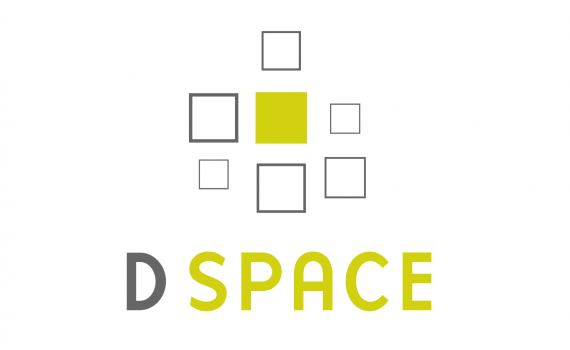
Over 70 people from 19 countries attended a webinar organized by EIFL and the Institute of Development Studies (IDS) on good practices in setting up DSpace repositories.
Participants came from Australia, Belarus, Ghana, India, Kenya, Kyrgyzstan, Macedonia, Moldova, Nepal, Nigeria, Palestine, Russia, Serbia, South Africa, Sweden, Tanzania, Uganda, the UK and Zimbabwe. The webinar took place on 20 January 2016.
Slides and recordings are available here.
Learning from experience
Nason Bimbe (IDS, United Kingdom), Hilton Gibson (Stellenbosch University, South Africa) and Andrew Mwesigwa (Makerere University, Uganda) shared lessons learnt from running sustainable institutional repositories, and DSpace repository operations optimization, drawing on experiences gained from managing the following repositories:
- IDS OpenDocs
- (makir.mak.ac.ug) Makerere University Institutional Repository
- SUNScholar : Stellenbosch University (SUN) Institutional Repository
- SUNDigital Collections
The speakers also provided references where further information can be found.
Useful tips on DSpace repository architecture
- DSpace is well tested in a Linux, PostgreSQL environment.
- Always run your repository with the latest software versions.
- Putting Apache web server in front of Tomcat works well and makes the platform stable and possibly scalable.
- If possible, use version control to manage your changes.
Useful tips for repository backup and recovery
- It is important to have a Business Continuity Plan that covers backups/restore procedures and policies for disaster recovery.
For more information about repository preservation, check out this page on Gibson’s SUNScholar wiki.
Useful tips on persistent identifiers
- Persistent identifiers are simply maintainable identifiers that allow us to refer to a digital object. Persistent identifiers are also persistently actionable (that is, you can ‘click’ them); however, unlike a simple hyperlink, persistent identifiers are supposed to continue to provide access to the resource, even when it moves to other servers or even to other organisations. Check out this article on Persistent Identifiers: Considering the Options, in which Emma Tonkin looks at the current landscape of persistent identifiers, describes several current services, and examines the theoretical background behind their structure and use.
- It is important to make sure that Handle functionality is well configured, otherwise, your content URIs will not resolve correctly – that is, they will resolve to a dead end. This is very important because content harvested through OAI-PMH uses the URI as the Resource Locator Address.
For more details check out the Electronic Citation Persistence page on Gibson’s SUNScholar wiki.
Useful tips on interoperability
- Make sure you enable the appropriate webapps for interoperability, more especially OAI-PMH.
For more details, check out the Remote Harvest page on Hilton’s SUNScholar wiki.
Useful tips on local customization
- Always customise your Dspace installation to suit your institution branding and way of working.
- Using mobile access (small screen form factor) is prevalent in developing countries; therefore it is important that your DSpace has a Responsive User Interface like those based on Mirage 2.
- Assess all default configuration settings to see if they meet you needs.
For more details, check out the Customization and XMLUI Theme/Mirage 2 pages on Hilton’s SUNScholar wiki.
Useful tips on discoverability
- Set up your sitemaps generation as a Cron job and make sure that filter media (‘breaking words in documents’) is set up as a Cron job.
- Make sure you set up a robots.txt file and place it in the ROOT for your DSpace to aid search engine web crawlers.
- If you can, register your DSpace with Google Scholar. (More information about Search Engine Optimization and Google Scholar Inclusion Guidelines for Webmasters).
- Always register your DSpace with all known ‘reputable’ aggregators.
For more details check out this page on Gibson’s SUNScholar wiki.
Useful tips on repository analytics
- At best you should know: number of downloads and views; geo-location of where these are coming from; and content analysis such as how many items are in the repository (by various dimensions, that is, by item type, subject, language, etc.).
- Assess what sort of insights you want from your Dspace and set up/acquire the appropriate visualisation and analysis tools.
- Dspace provides a number statistics such as number of downloads, number of items, number of failed logins, etc. (All the data is available in the SOLR indexes – these can be queried directly as well).
- Use Google Analytics (registration required) or Piwik (an open source web analytics) to collect information about site visits.
- As of DSpace 5, there is integration with Google Analytics via GA API, statistics are therefore accessible in DSpace.
For more information check out Repository Website Metrics and Research Article Metrics pages in Hilton’s SUNScholar wiki.
Useful tips on the repository policies
- Make sure appropriate policies are set up on depositing and copyright issues.
- Set up a mechanism for updating them as you learn more, and also to take in the changes happening in the environment (at local, national and global levels).
- Make sure the policies you set up are not creating ‘pain points’ in your processes and objectives, but instead are enablers.
- Plan on how policies will be advocated for, disseminated, implemented and monitored.
- Consider mandating immediate self-archiving/deposits (request researchers to self-archive their publications in an open access institutional repository): immediate deposit with immediate open access and/or with optional access (requires immediate deposit, but if the article is submitted to a journal with an embargo, then the policy permits access to be open only at the end of the embargo period).
What’s next for EIFL?
In 2016-2017 the EIFL Open Access Programme will help repository administrators and managers from EIFL partner countries to keep up-to-date with the latest technology and policy developments, and will help build local capacity in the management of open access repositories.
We will develop check-lists on current requirements for open access repositories (infrastructure and policies); conduct an audit of open access repository developments in our partner countries, and provide good practice recommendations via webinars and other knowledge-sharing activities.
If you want to contribute to or participate in these activities, please contact EIFL Open Access Programme Manager Iryna Kuchma: iryna.kuchma@eifl.net.
SHARE / PRINT









